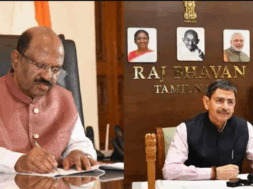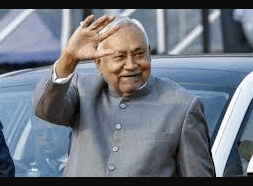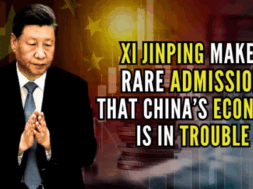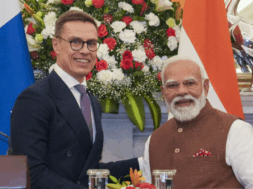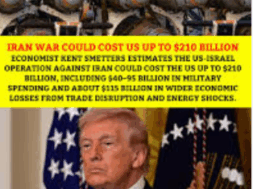
Roving Periscope: Russia denies Trump-Putin talked about ending Ukraine war
Virendra Pandit
New Delhi: Russia on Monday denied as “completely false” an American media report that US President-elect Donald Trump and his Russian counterpart Vladimir Putin ‘talked’ last week about ending the ongoing Ukraine war, which started on February 24, 2022.
The Washington Post reported on Sunday that Trump talked by phone with Putin on Thursday last week, telling him not to inflame the conflict, the media reported on Monday.
The Post suggested that Ukrainian officials were informed about Trump’s call with Putin and they did not oppose it, anticipating that the US President-elect, who is set to take oath on January 20, 2025, would pursue diplomatic engagement with Russia.
Kremlin spokesman Dmitry Peskov, however, told journalists that The Washington Post report was “simply false information,” denying any phone call took place between the two leaders.
In the call, the Post report said that Trump reminded Putin of Washington’s sizeable military foothold in Europe. It also reported that people familiar with Thursday’s call said Trump had briefly raised the question of Ukrainian land with Putin. The American leader sought more conversations on “the resolution of Ukraine’s war soon.”
On his recent election campaign trail, Trump said that he could end the ongoing conflict within hours and indicated he would talk directly with Putin. However, he said nothing so far about how he would strike a peace deal or the terms he would propose.
Russia has demanded Ukraine withdraw from swathes of its eastern and southern territory, which Moscow has annexed during the war, as a precondition to peace talks.
Following Trump’s election, Ukrainian President Volodymyr Zelensky warned that “no concessions” should be given to Putin. Ceding land or giving in to any of Moscow’s other hardline demands would only embolden the Kremlin and lead to more aggression, he said.
Despite Moscow’s denials, global media was abuzz on Monday with reports about Trump desiring follow-up discussions aimed at finding a swift resolution to the war in Ukraine.
During his presidential election campaign, Trump criticized the “billions of dollars” sent by the US to support Ukraine and even vowed to resolve the conflict “within 24 hours.”
“We continue to give billions of dollars to Zelenskyy, who refuses to make a deal,” Trump said at a campaign event in North Carolina in September. If they made a bad deal, it would have been much better. They would have given up a little bit and everybody would be living.”
While Trump did not outline specific ideas for negotiating talks between the two nations, he generally advocated for the US to reduce its involvement in foreign conflicts. Similarly, while he showed strong support for Israel in its war in the Middle East, he urged the Jewish nation to conclude its military operations.
The media reported that Trump privately indicated a potential willingness to support a deal allowing Russia to retain some of the Ukrainian territories it currently holds. The topic of territorial concessions reportedly came up briefly during his conversation with Putin on Thursday.
The President-elect appears eager to avoid a fresh crisis in Ukraine upon taking office in January, viewing diplomatic engagement with Putin as a pathway to prevent further escalation.
“This is something that should never have happened. It would not have happened if I were the US President,” Trump told Fox News in February 2024.
In an interview with NBC on Thursday last, Trump disclosed that he had spoken with around 70 world leaders since the election, including Ukrainian President Volodymyr Zelensky, in a call that was also joined by tech entrepreneur Elon Musk.
However, Trump’s interactions with foreign leaders are currently being conducted without the usual support of the US State Department or official translators, as his transition team has yet to finalize an agreement with the General Services Administration.
Trump and his advisers remain cautious about involving career government officials, given past incidents of leaked diplomatic communications.
Russia invaded Ukraine on February 24, 2022, marking a significant escalation of tensions following Moscow’s 2014 annexation of Crimea and its support for pro-Russian separatist movements in eastern Ukraine. The conflict has resulted in widespread destruction, a humanitarian crisis, and millions of refugees, with global impacts on energy markets, food security, and geopolitics.
Ukraine, backed by Western nations through sanctions, financial aid, and military support, has resisted Russia’s advances.
US intelligence agencies have noted the presence of around 10,000 North Korean troops in the Kursk region of Ukraine, potentially boosting Russia’s efforts to reclaim lost territory.
Ukrainian commanders have also observed North Korean troop deployments in Russia’s neighboring Belgorod region.


